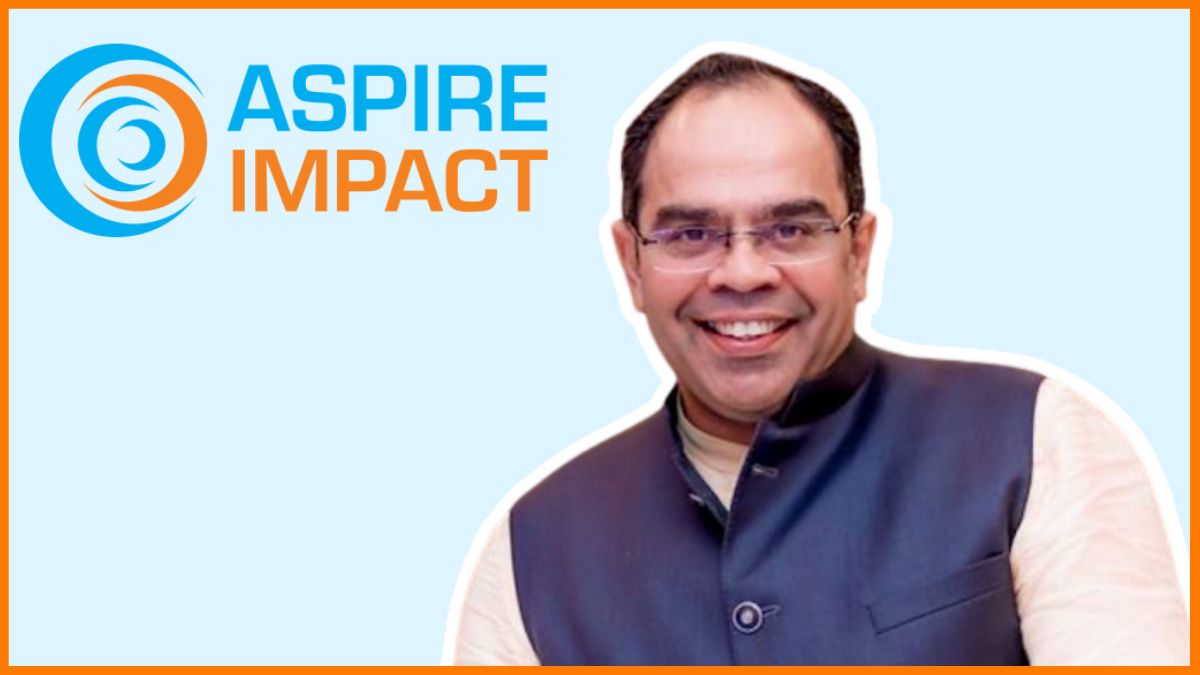How Social Impact is Evolving the Startup Ecosystem
👨💻StartupTalkers
A startup ecosystem is a creative environment to promote entrepreneurship and innovation. These days, startups are taking different approaches with a variety of innovative ideas and products to create Social Impact around the world. They are focussed towards creating social impacts on several sectors - Technology, Education, Health, and others.
Aspire Impact is a Delhi based Impact Rating & Certification initiative. The startup is focused on leadership and ecosystem development in social and environmental impact space.
StartupTalky interviewed Amit Bhatia, Founder & CEO of Aspire Impact to get insights on how he got the idea of building an Impact Rating Startup.
Here is an excerpt of Interview with Amit Bhatia, Founder & CEO- Aspire Impact
How did this idea of social impact come up which inspired you to make Aspire Impact?
In 2020, after concluding my term (2017-2020) as Inaugural CEO of G7’s Global Steering Group for Impact Investment, I was convinced that we will not nudge the Impact Movement past its tipping point unless we get the world to agree on a common standards-based impact measurement system. Whereas there were couple of efforts underway around the world, as former Founding CEO of India’s Impact Investors Council, I believed I could deliver a breakthrough by making Impact empirical and comparable between companies. I believed that if a standardised impact measurement system, which subsumes ESG & Sustainability ratings is created, we will contribute solutions for the apparently intractable challenges like poverty and inequity and make corporations a partner in the solution. It was with this inspiration we created Aspire Impact, a start-up with an ambitious and audacious goal of creating world and India’s first Impact Rating venture.
Do you think India has evolved and adapted the concept of social Impact?
The ESG, Sustainability & Impact Movement has already attracted $59 trillion worldwide, ~40% of global Assets Under Management (AUM) and is an unstoppable trend. Despite the pressing need to address social and environmental challenges, India has attracted only -1% or $51 billion of this global capital pool: $30 billion in Responsible or ESG Investments, $10.3 billion of sustainable or green investments, and, $10.8 billion of impact investments. The root cause is lack of corporate alignment with impact, as there is no mandatory Sustainability or Impact Reporting framework.
BRSR (Business Responsibility & Sustainability Reporting) for the top 1000 listed companies, India's version of ESG, with >130 disclosures, requires much synthesis to be valuable. Moreover, the environment is opportune, and the need is clear, as a recent HBS publication of environment costs for top 250 Indian companies shows India Inc. is gravely uncompetitive in the global Impact economy:
Indian corporations must therefore prepare for the era of Impact Accounting, beyond ESG and must adapt to the era of social impact assessment, ratings, and reporting.

What would be the social impact areas in 2022 in the Startup Ecosystem?
On the basis of historical evidence: Financial Inclusion, Renewable Energy, Agriculture, Health, Technology and Education have received the most impact investments over the last decade. However, in the decade ahead- the fastest growth will be delivered by Tech for Good sectors where technology intersects with traditional impact sectors like EdTech, HealthTech and AgriTech.
Since Aspire Impact has launched a few social impact reports recently, which sector do you think has huge potential and how?
We believe, India’s immediate goal should be growth with job creation and we have empirical evidence that Impact sectors create 10-14 x more jobs for each $1 mn invested. Therefore, India must focus on three areas:
- Catalyse Tech for Good sectors - CleanTech, EdTech, HealthTech, AgriTech, FinTech & FemTech which promise steepest growth, from $65 bn to $177 bn market between 2020 to 2025;
- Support specific investment themes. Our analysis of five sectors (Agriculture, BFSI, Education, Water/Waste & Disabilities) shows India can create ~50 million new jobs in 5 years in Dairy Farming (22 mn) Tech-enabled K-12 (3 mn); Digital Consumer Savings Products (1.3 mn) Supplemental & Extra-Curricular Education (1 mn); Student Housing Solutions (1 mn); Neo-Banking (0.6 mn); & Digital Lending (0.5 mn);
- Promote Micro Entrepreneurship in rural India, i.e., job creators not job seekers as with small micro loans of INR 2-3 Lacs, a micro-entrepreneur can create self-sufficiency while creating 1-3 local jobs!

How are the key industry leaders supporting the concept of Aspire impact?
Indian leaders realise that to deepen and widen the Impact Movement in India, the leaders must do the following:
- Enhance corporate alignment with impact, and in absence of regulatory Sustainability or Impact Reporting, voluntarily publish Impact Reports, to slowly but surely build an Impact DNA for an era of Impact Capitalism for risk management, brand building, fund-raising, future competitiveness and authentic citizenship;
- Support research & knowledge, education & training, and, awareness & advocacy about the sector. Last year, 207 India Inc. leaders came together for co-authoring and publishing 8 Impact Future Project reports- a rare collaboration. This year, in 2022, another group will take the initiative forward; and,
- Solve the missing piece of the Impact Economy jigsaw- i.e., a standards-based Impact Measurement framework. In 2022, along with partners like Capgemini & University of Chicago’s ESG Centre, 25+ CXOs will release a standards-based framework of Impact Measurement for India- another rare first!
Must have tools for startups - Recommended by StartupTalky
- Convert Visitors into Leads- SeizeLead
- Website Builder SquareSpace
- Run your business Smoothly Systeme.io
- Stock Images Shutterstock






